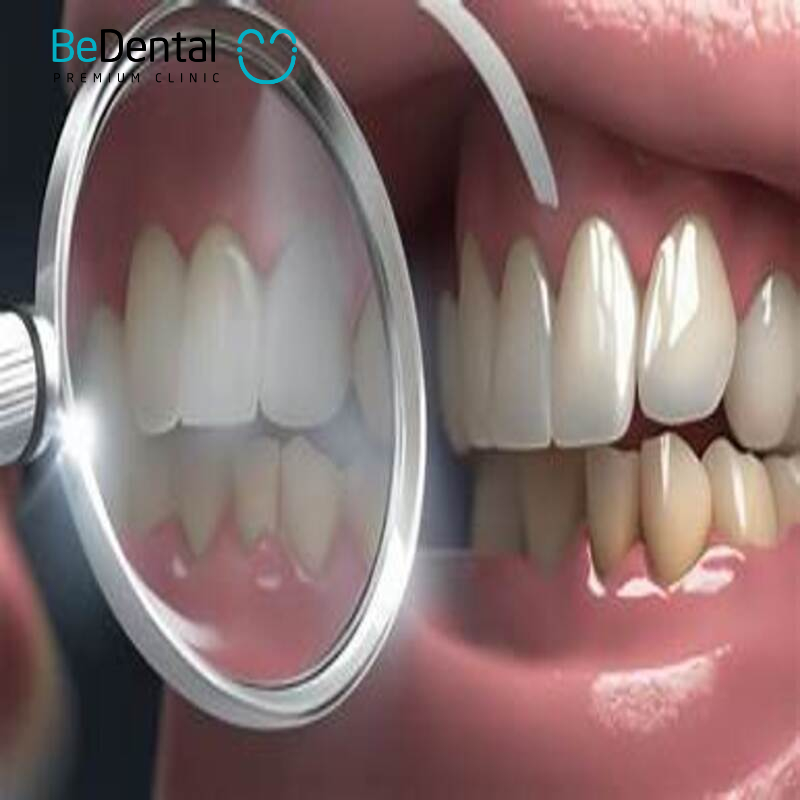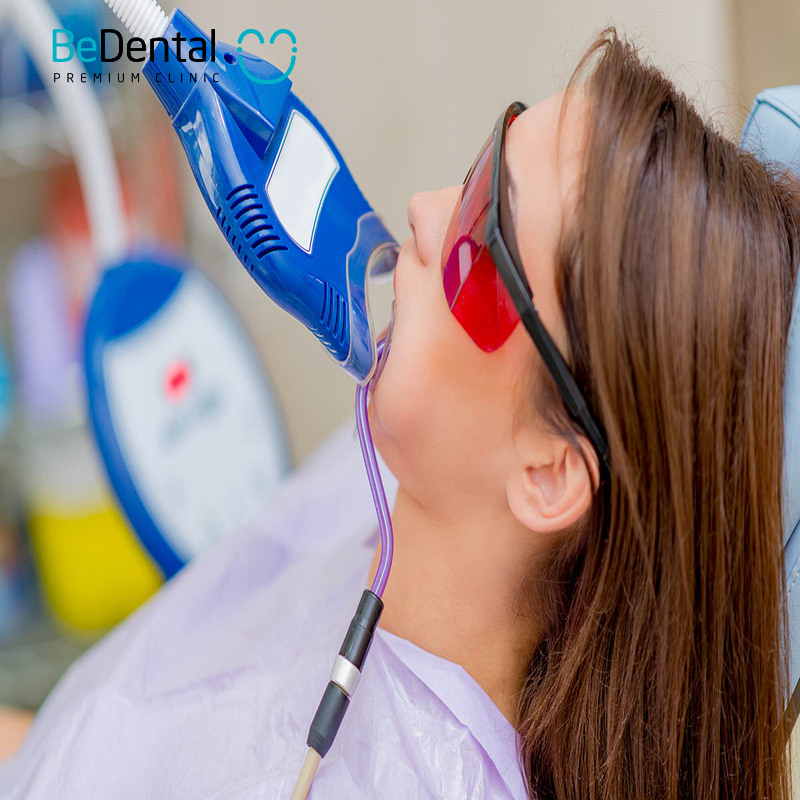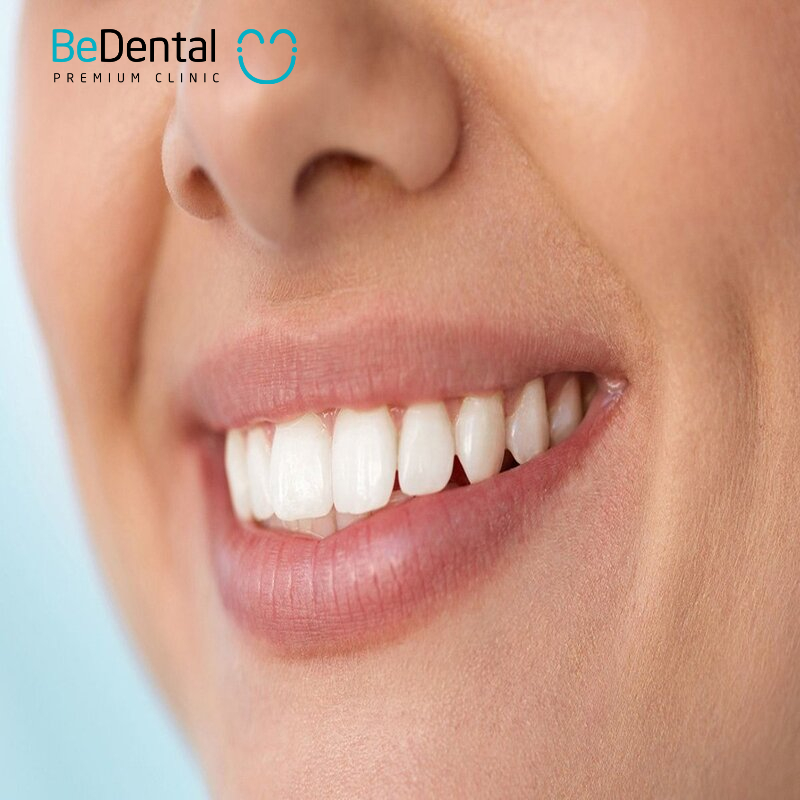According to a study published in the Journal of Dentistry, using whitening products containing hydrogen peroxide can reduce enamel hardness by up to 30% within the first 24 hours of application. This indicates that while teeth whitening may provide impressive results, it’s essential to understand the potential impacts on oral health. This article will help you explore what you need to know about this issue, Does teeth whitening harm enamel?
Does Teeth Whitening Harm Enamel?
Does teeth whitening harm enamel? Several studies have shown that teeth whitening products can temporarily reduce enamel hardness. For example, a study published in the Journal of Dentistry found a significant reduction in enamel hardness after using hydrogen peroxide-based whitening products.
Journal of Dentistry Study
- Authors: H.H.A.F.F. de Oliveira et al.
- Published: 2015
- Summary: This study evaluated the effects of hydrogen peroxide whitening products (from Science Direct) at different concentrations (3%, 6%, and 9%) on enamel.
- Results: After treatment, enamel hardness significantly decreased, with up to a 24% reduction observed after 14 days of treatment using a 9% hydrogen peroxide whitening product. This decrease can last for a while, impacting enamel health.

This study provides specific evidence of the negative effects of hydrogen peroxide, a common ingredient in many teeth whitening products. The 24% reduction in enamel hardness after 14 days of use highlights the potential for significant damage, especially at higher concentrations (9%). This underscores the importance of using the correct dosage and duration.
Overview Journal of Dentistry Study
The study indicates that while whitening products are effective in improving the appearance of teeth, attention must be given to their short-term impact on enamel. Regular check-ups and guidance from a professional are necessary to ensure the best oral health.
Another Study- Does teeth whitening harm enamel?
- Authors: S.A.M.T.G. de Freitas et al.
- Published: 2018
- Research: This study examined the effects of carbamide peroxide and hydrogen peroxide-based whitening gels on enamel.
- Results: Enamel hardness decreased from 1.4 GPa to 1.1 GPa after 14 days of use, showing significant damage.
The findings show that not only hydrogen peroxide but also carbamide peroxide can affect enamel hardness. The reduction from 1.4 GPa to 1.1 GPa indicates that whitening products can cause enamel damage. This underscores the need for continued research to determine the safety of these products with long-term use.
Overview- Does teeth whitening harm enamel?
The study emphasizes the need for consumers to understand the products they are using. Beyond knowing the whitening effectiveness, consumers should also be aware of potential risks to enamel, allowing them to make more informed choices when selecting products.
International Dental Journal Study
- Published: 2016
- Summary: This comprehensive review analyzed several previous studies on the effects of teeth whitening.
- Conclusion: Whitening products may cause temporary enamel damage, but there is no evidence of permanent harm if used as directed. However, misuse or overuse can lead to long-term issues.
This comprehensive study reflects a consensus among scientists regarding the temporary negative impact of whitening products on enamel. While enamel damage may be temporary, improper use or overuse can lead to long-term problems, cautioning consumers to be more careful in selecting products.
Overview:
The findings from this review affirm that whitening products must be carefully monitored. Consumers should seek professional advice from a dentist before deciding on their use to achieve whitening results while protecting oral health.
The Impact of Teeth Whitening on Enamel
Here’s an analysis and summary of factors affecting the whitening process and its impact on enamel:
Enamel Condition Before Whitening
The condition of your enamel plays a critical role in using whitening products. If the enamel is already damaged, weak, or thin, whitening products may do more harm than good. Some studies suggest that healthy enamel can better withstand the effects of whitening products, while weak enamel is more susceptible to damage, leading to sensitivity or cavities.
Time and Frequency of Whitening Product Use
The time and frequency of using whitening products greatly affect the results and safety of the process. Overusing or prolonging whitening treatments can lead to enamel erosion, reduced hardness, and increased sensitivity. Many whitening products recommend using them only once or twice a week to avoid negative effects.

How Different Whitening Methods Affect Enamel
Below is an analysis of various whitening methods and their effects on enamel:
Laser Whitening and Its Impact on Enamel
This method uses a laser in combination with bleaching agents to whiten teeth. The laser enhances the bleaching effect, delivering immediate results.
Effect on Enamel: Studies show that laser whitening can temporarily reduce enamel hardness. A study published in the Journal of Dentistry noted that some patients experienced temporary sensitivity after treatment. However, when performed correctly under professional supervision, this effect can be managed.
For individuals with healthy enamel, this method is generally safe and does not cause long-term damage.
Bleaching Products and Their Impact on Enamel
Whitening products often contain hydrogen peroxide or carbamide peroxide. These chemicals penetrate the enamel to lighten the tooth from the inside out.
Effect on Enamel: Frequent use of bleaching products can lead to reduced enamel hardness. One study revealed that enamel could lose 1-2% of its hardness after using bleaching products, especially if misused or overused.
However, if used as directed and under the guidance of a dentist, the risks can be minimized.
Natural Whitening Methods (Baking Soda, Coconut Oil)
- Baking soda (baking soda): Has alkaline properties and mild abrasiveness, helping to remove plaque and whiten teeth.
- Coconut oil: Used in oil pulling, it helps remove bacteria and plaque, contributing to natural teeth whitening.
Effect on Enamel: Natural whitening methods generally cause less harm than chemical bleaching. Baking soda can cause slight abrasion if overused, but when used moderately, it typically does not cause significant enamel damage. Coconut oil is a gentle method, cleaning the mouth without harming enamel, although its whitening effects may not be as noticeable as other methods.
Protecting Enamel During Whitening
Here’s a detailed analysis of considerations for choosing a safe teeth-whitening method:
Choosing Products That Match Your Dental Health
Selecting a whitening product should be based on the specific condition of your teeth. If you have weak or damaged enamel, opting for gentler products or natural methods may be better.
Benefit: Choosing the right product helps minimize risks to enamel, prevents sensitivity, and optimizes whitening results.
Note: Always read product ingredients carefully and look for products that are certified safe by reputable brands.

Consulting with a Dentist- Does teeth whitening harm enamel?
Consulting a dentist before whitening is essential. The dentist will assess your dental health and provide appropriate recommendations.
Benefit: Expert advice ensures that you understand your dental condition and choose the safest, most effective whitening method. The dentist can also recommend the best products for you.
Note: Don’t hesitate to ask your dentist about potential risks and how to mitigate them during whitening treatments.
Maintaining Proper Oral Care
Maintaining a good oral care routine is crucial after whitening to protect and prolong the whitening results.
Benefit: Regular oral hygiene, including brushing twice a day, flossing, and regular dental check-ups, helps prevent plaque and stain build-up.
Note: Pair with a balanced diet, limiting foods and drinks that stain teeth, such as coffee, tea, or red wine, to maintain brightness.
BeDental is a trusted dental clinic specializing in teeth whitening
BeDental is a reputable dental clinic in Vietnam that specializes in teeth whitening services. With a focus on patient satisfaction and safety, the clinic employs advanced whitening techniques to achieve bright, natural-looking results. Their team of skilled professionals is dedicated to providing personalized care, ensuring that each treatment meets the unique needs of every patient.
Choosing a safe teeth whitening method requires thoughtful consideration, from picking the right product to seeking professional advice and maintaining good oral hygiene. By following these steps, you can achieve a bright, white smile without harming your enamel.
For those seeking further consultation regarding dental examination services, please visit BeDental’s locations in Hanoi or Ho Chi Minh City. You can also reach us at our hotline: (+84) 934.61.9090 / (+84) 899.555.636 or through our Facebook page, BeDental, for prompt and accurate assistance.




